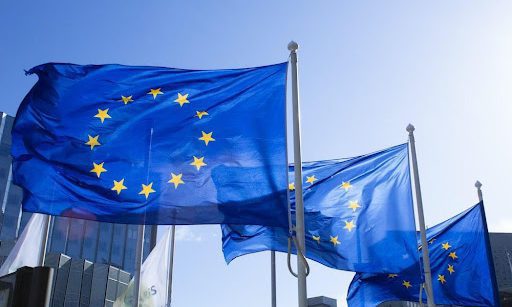Are hotels ready for more corporate sustainability reporting?

Many countries have put climate change targets into law but only one country – Gambia – is anywhere near on track to meet its climate targets by the end of 2022, and even that is looking like a slim chance. More rigorous reporting and action is clearly needed, especially in the light of the Corporate Sustainability Reporting Directive (CSRD), adopted on November 28, 2022 by the European Council.
Are hotels ready for this new directive which will intensify scrutiny on sustainability and reporting for big companies and SMEs in EU member countries with established submission timelines, and which will soon affect hoteliers beyond the EU.
Today, there is greater expectation for business to lead and do good, address societal problems and demonstrate commitment to a sustainable future with long-term thinking prevailing over short-term gain.
However, according to a Climate Focus survey of sustainability leaders, a lack of knowledge, resourcing, complexity, and cost have been identified by 93% of them as internal barriers to achieving the environmental targets in the overall Environmental, Social, Governance (ESG) approach. While sustainability commitments have grown in number and ambition, building capacity and implementing a programme with measurable sustainability performance targets are far from the core competency of most organisations. And for hotels (who are already challenged by internal barriers, such as a lack of knowledge, resourcing and budget), choosing the right partners and funding support is vital.
Google launched an innovative resource, in September 2021, which aims to differentiate hotels and resorts, to stop greenwashing and promote sustainable travel. If hotels and resorts have a science-based sustainability certification programme with an independent expert audit, the search engine labels them as “Eco-Certified” with a green leaf-shaped emblem and eco details in global search results. Google also provides hotel owners with a list of approved certification agencies and identifies a few sustainability practices to expand on. Google’s ‘Eco-Certified’ label focuses on environmental impacts and shares a few practices, but there is no focus on important social endeavors, such as investing in conservation, in communities where hotels operate, or promoting ethical wildlife experiences. Nor does it recognise programmes with self-reported environmental, social and governance data. View the 31 certification agencies HERE.
Elsewhere there are more than a hundred organisations worldwide offering sustainability certification programmes. Many are members of the Global Sustainable Tourism Council (GSTC) but, unfortunately, the GSTC no longer differentiate Certification Bodies from either those that only recognise their sustainability criteria or those that are science-based with rigorous sustainability systems that deliver measurable and effective solutions.
So where to begin?
A good place to start the journey of understanding is the United Nations Educational, Scientific and Cultural Organisation (UNESCO), a specialised agency that helps people understand and address the impacts of the climate crisis, empowering them with the knowledge, skills, values and attitudes needed to act as agents of change.
Supporting the United Nations Sustainable Development Goals (SDGs) on property, in communities and in carbon offset projects should be a sustainability goal. The 17 UN SDGs and their 169 targets is a universal call to action to end poverty, protect the planet and improve lives. They cover initiatives carried out by governments, companies and institutions. SDG 13 – “Take urgent action to combat climate change and its impacts,” is a great place to find official reports and analysis.
With reporting obligations only going to get tougher, it’s important for hotels and resorts to review the resources and education on sustainability that are widely available from qualified consultants, advisors, certification bodies and education establishments who ensure that sources credibly ‘walk the sustainability talk’ and have a Code of Ethics and a Sustainability or Impact Report. View NOW Resources – Trends, and Insights and Innovations.
One route worth exploring is Sustainability-linked loans. These are available to facilitate and support environmentally and socially sustainable economic activity and growth. They are structured as a revolving credit facility with a small incremental pricing benefit to the borrower for meeting specific sustainability performance targets (SPTs), which measure improvements in the borrower’s sustainability goals (rather than a more generic ESG score), underpinned by a rigorous sustainability certification programme.
Examples of hotel brands that received a sustainability-linked term loan from numerous banks are Langham Hotels (Langham Hospitality Investments) and Hong Kong and Shanghai Hotels (Peninsula Hotels). Both are underpinned by EarthCheck reporting and achieving certification levels for their hotels. 
A green loan enables borrowers to use the proceeds to exclusively fund projects that make a substantial contribution to an environmental objective, which will be assessed, measured, and reported by the borrower with transparency. Reporting requires qualitative performance indicators and measurements. One example of this is The Worldwide hotel group (Worldwide Hotels Group) which acquired its first green loan amounting to $405m from Maybank Singapore.
It Must Be Now adopts a different model, one that supports Hotels and Resorts throughout by both offering certification and funding. The NOW Climate Positive Program & Award is a project cooperation led by It Must Be NOW together with EarthCheck (the world’s leading certification program for sustainable hotels), and an owner of carbon offset projects. For up to 10 years, hotels and tourism facilities are offered a fully funded Integrated Sustainability Program with no repayment required. Instead, after an independent audit before the end of Year 2, they can purchase from a selection of high-quality carbon offset projects supporting SDGs with pricing capped to control risk.









